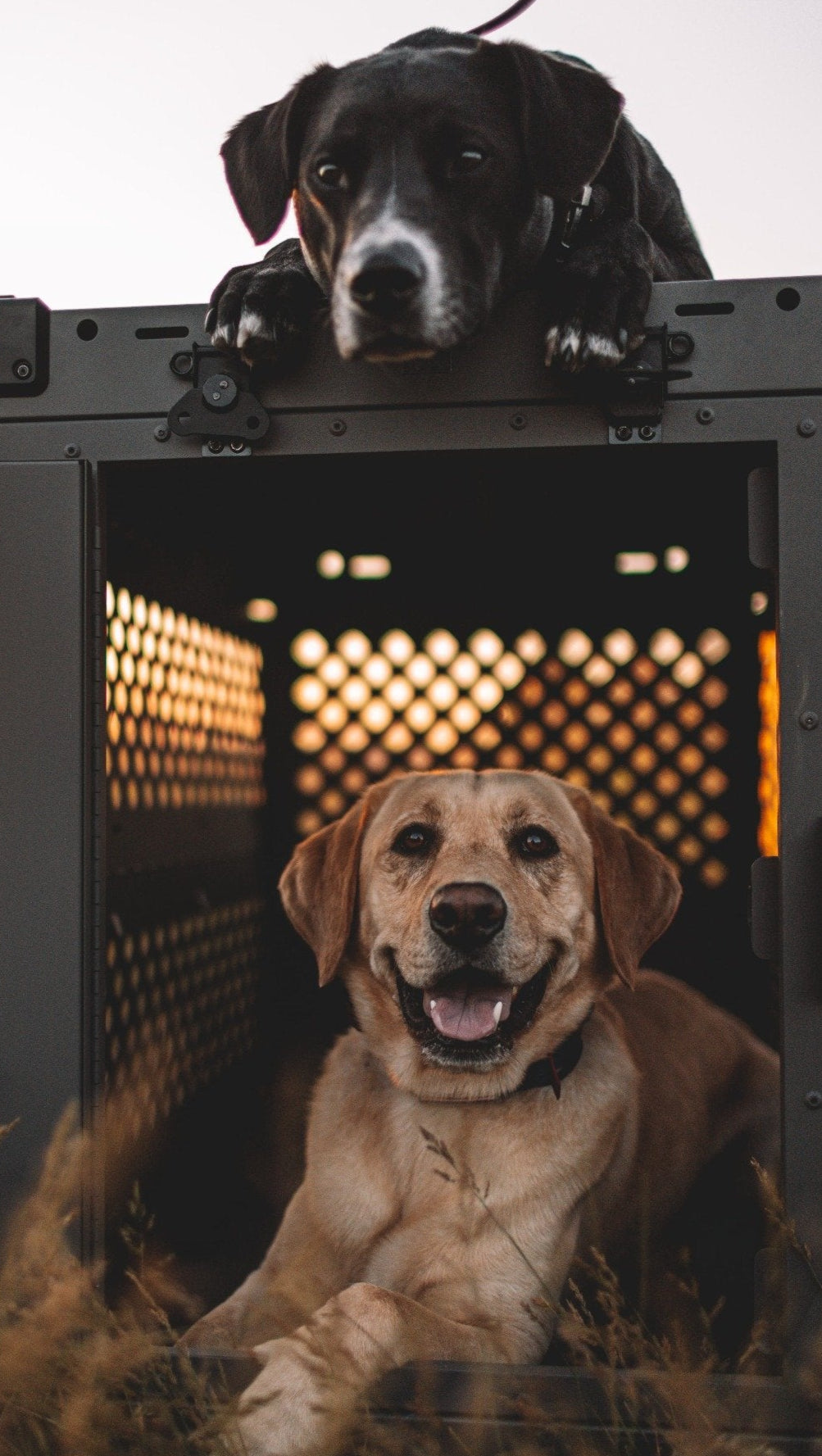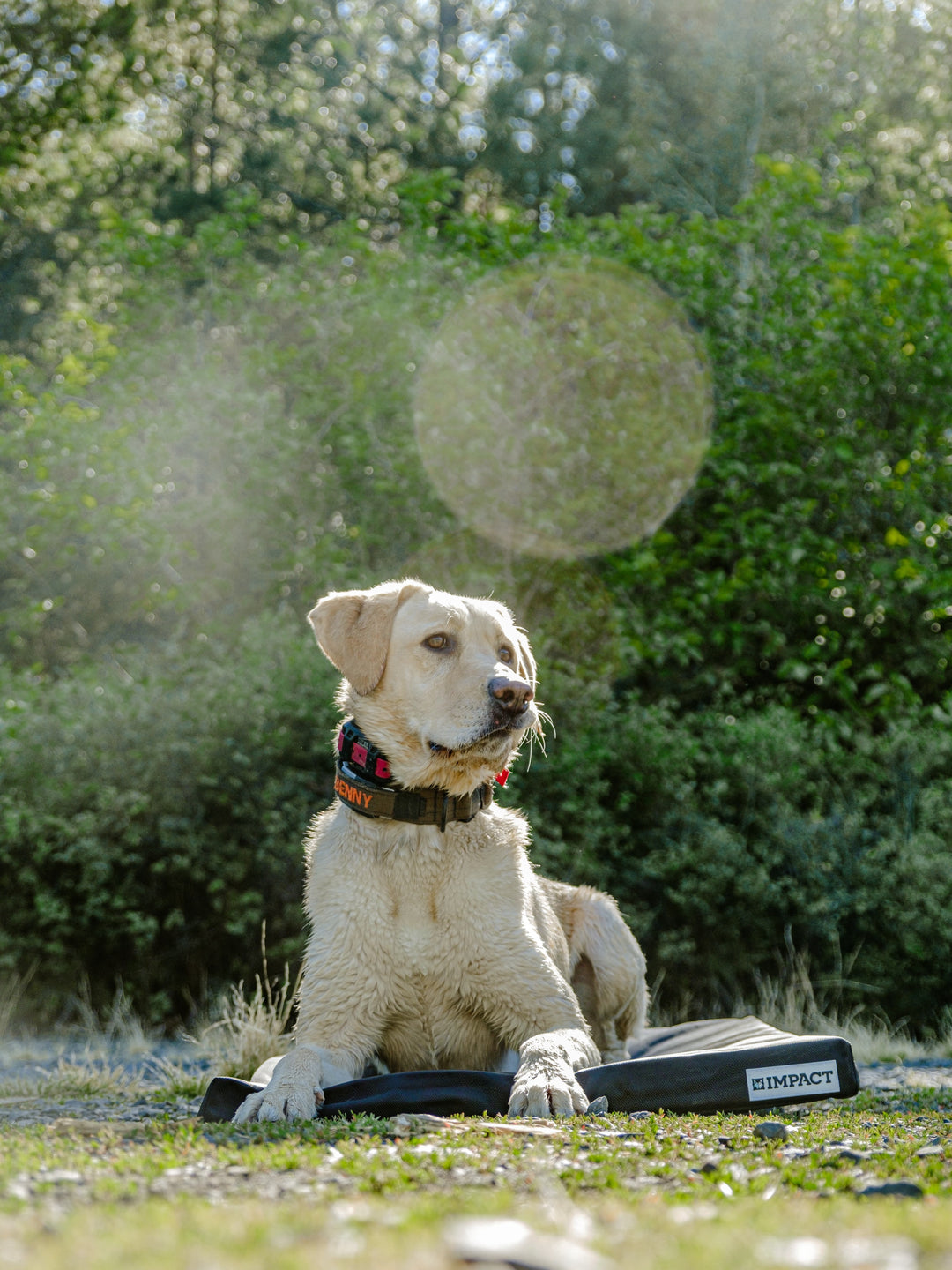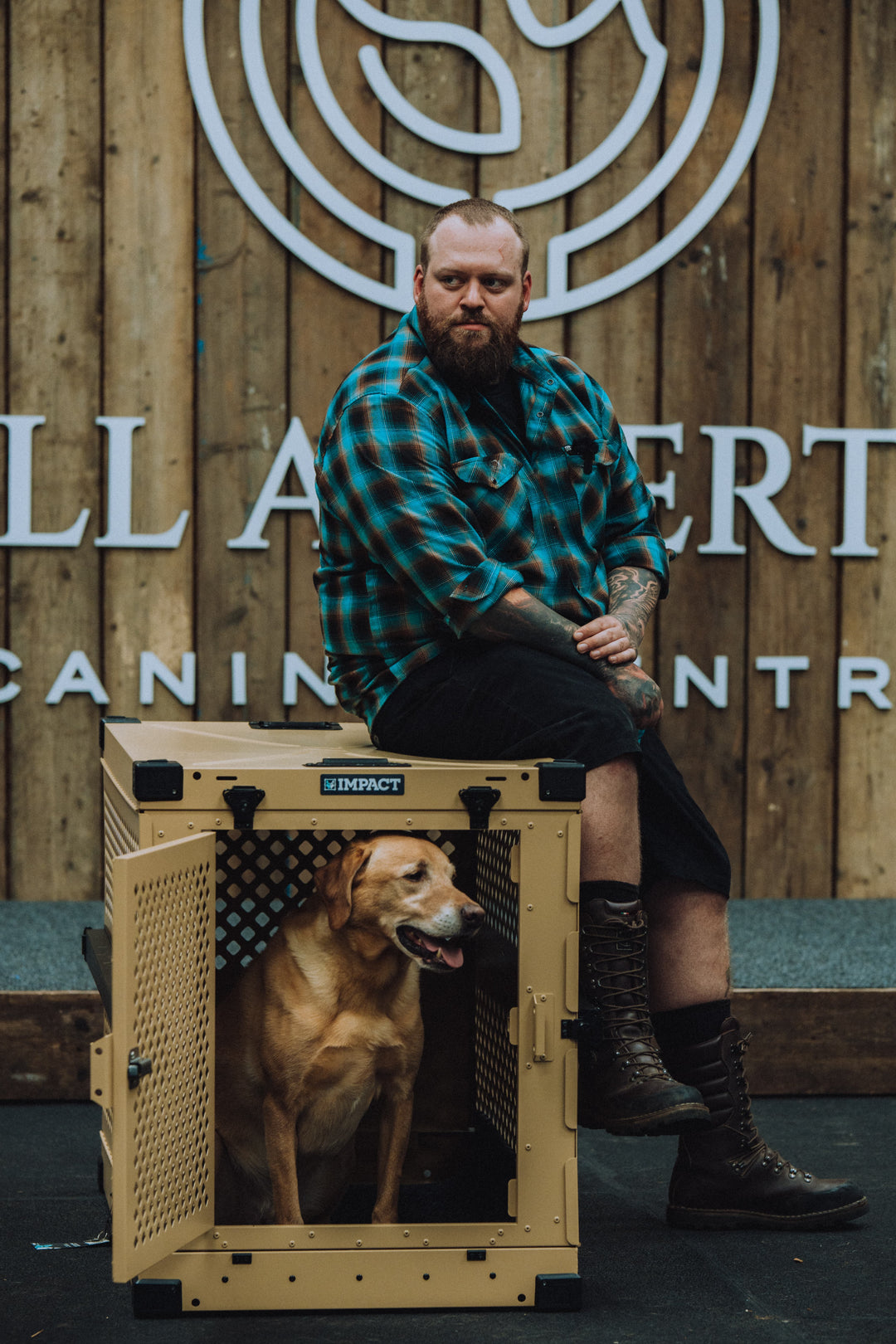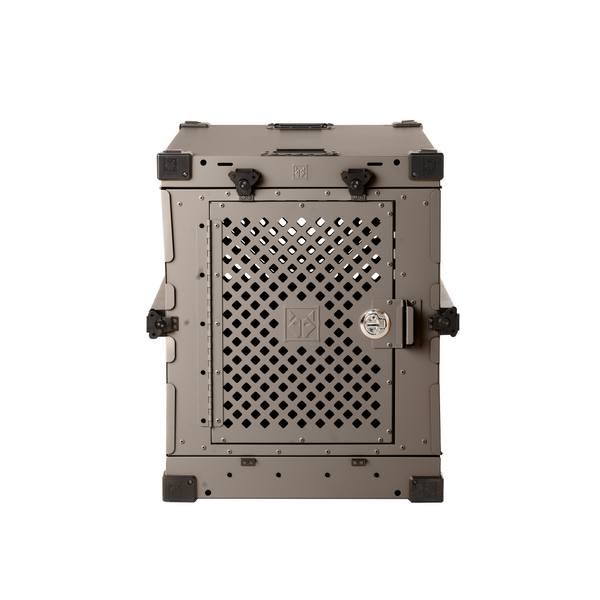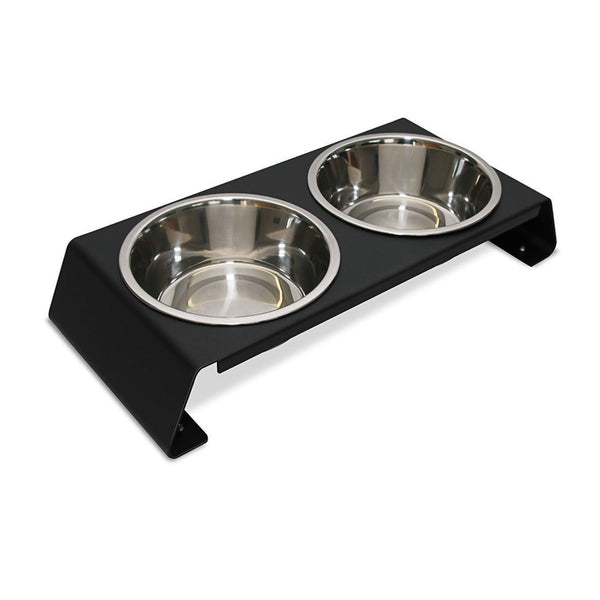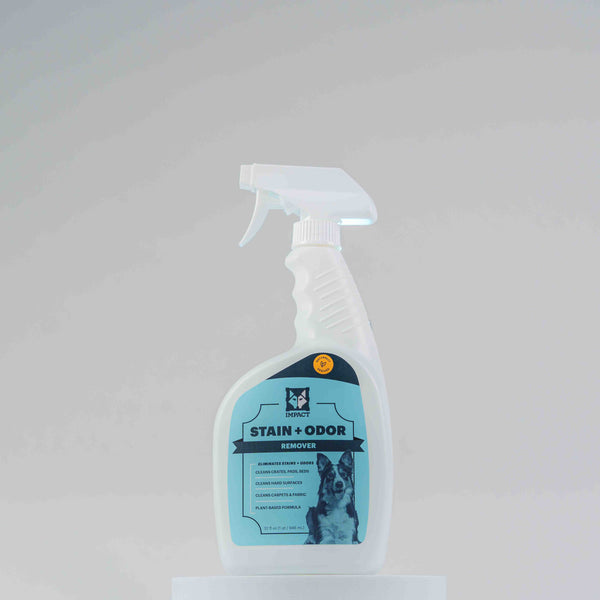Has it ever happened that you were feasting with friends at home or eating solo, and your dog stood right in front of you with those pleading eyes, silently asking for a bite of whatever you were having? Out of sheer love, you gave them a few bites—but it's time to break that habit. Not all human food is safe for dogs. Some can be given in moderation, but others fall into the danger zone and can lead to serious consequences. It's not a risk worth taking.
If you want that wagging tail to stay happy and healthy for years to come, it’s important to know which human foods are safe to share with your furry friend—and which ones should be kept well out of reach.
Why Can’t Dogs Eat Everything You Can Have?
Despite being classified as omnivores like humans, their digestive systems are completely different. What you might think is safe and even healthy for you can turn out to be toxic for them as well. Dogs tend to metabolise certain compounds differently, and foods with high levels of salt, sugar, or particular chemicals can lead to gastrointestinal upset, toxicity, or worse.
Furthermore, every dog is also not of the same size, age, or with similar health conditions. For instance, a small dog might be affected by an infection that an adult dog could tolerate, therefore, it is strictly recommended to consult your vet before adding new food to their bowl.
Offer In Moderation
The golden rule in this situation is that you should offer the allowed foods in moderate quantities. They must not exceed more than 10% of your dog’s daily calorie consumption, and whatever you feed has to be of premium quality, made from balanced dog food exclusively designed for their requirements. Hence, introduce new foods slowly to see whether it suits your dog or causes allergic reactions or digestive issues.
The Safe People Foods
A number of kitchen staples prove to be a healthy and delicious choice for your dog’s diet, only if you prepare them in the correct style and serve them in decent quantities:
Lean Meats
Lean meats, either cooked or plain, can be fed to your dog. According to Purely Pets, this kind of meat is easily digestible and assists with building and repairing damaged muscles
Why Is It Safe?
Both cooked and plain lean meats are an ideal source of protein for dogs.
Best Lean Meat Options
Chicken - Be it boneless, skinless, or plain cooked chicken, all three in their boiled or baked form are a popular and safe choice.
Turkey - Like chicken, make sure to remove the bones, skin, and cook plain. Kindly, avoid any seasonings as an attempt to boost the flavour or buy the processed version.
Beef - Beef is safe, but with the fat removed, lean cuts, and when cooked plain. No need to sprinkle salt or pepper.
Pork - Take plain pork in small amounts because the meat is fattier than normal chicken or turkey. Move away from that packet of raw bacon, as that is packed with high degrees of fat and sodium.
Some Important Notes
No Bones - We are telling you to remove bones from the lean meats because they can splinter, choking your dog or creating internal damage.
No Seasonings - We like seasonings such as onions, garlic, and salt in our food, but they harm your dogs the same way.
No Raw Meat - Many people support raw feeding because it opens the ground for bacterial contamination, such as Salmonella and E. coli, for both dogs and humans.
Particular Fruits
Fruits are nature’s bliss, packed with antioxidants and vitamins, but still, some are better than others. While feeding your dog fruits, remember to remove pits, cores, and seeds:
Apples
Apples. especially without the core and seeds are a great source of fibre and vitamins A and C. Its seeds consist of small amounts of cyanide that can increase over time.
Bananas
Bananas are like the go-to fruit for humans, especially for an instant energy boost. The fruit is rich in potassium and vitamins but contains lots of sugar; therefore, offer it to your dog in small amounts.
Blueberries
Blueberries are packed with antioxidants and vitamins C and K. The small size makes it easier for your dogs to eat.
Cantaloupe
In the list of allowed fruits, you have cantaloupe as well. The fruit is a great source of water, fibre, and vitamins, but it consists of a pretty high sugar ratio, so you need to give it in appropriate amounts.
Cranberries
Another one from the berry family, cranberries prove their worth by supporting your dog’s urinary tract health. Try your best to offer fresh, frozen, or even plain; however, avoid the sweetened products as they have artificial sweeteners, which are toxic to your dog.
Mango
Like humans, even dogs can eat mangoes. The fruit contains vitamins A, B6, C, and E, but make sure you serve it without the pit. Why? The reason is that it contains a bit of cyanide that poses a choking danger.
Oranges
Did your dog just see you enjoying juicy oranges, and now they are hoping you will give them some too? No worries, you can share the citrus resource in small amounts, as bigger pieces can result in an upset stomach. Just remove every peel and seed so it doesn’t choke your pal.
Pears
Like apples, remove the seeds of the fruit and add them to their fruit bowl in small quantities. If they enjoy the treat, then you can give a little more, but if you notice that they threw it out, stop at that very moment.
Pumpkin
The rich orange pulp of the pumpkin is an excellent source of fibre, aiding your dog’s digestive health. Search for plain canned pumpkin, or cooked fresh style, the pie filling will be harmful for them.
Raspberries
If you have raspberries in your fruit section, then you are allowed to pamper your friend with this fruit. These berries are low in sugar and calories and can amaze you with their fibre and antioxidant properties. However, keep in mind that raspberries contain traces of Xylitol, which you know are very toxic for your dog; therefore, limit to small quantities.
Strawberries
The berry with seeds on the outside can be given to your dog. Yes, we are talking about strawberries, packed with antioxidants, fibre, and vitamin C.
Watermelon
You can make your dog a partner while eating watermelon, but remove all the seeds and rind, as that is hard and poses a risk to your furry friend’s digestive system.
Vegetables
Vegetables are considered wholesome edible items because they contain the earth’s goodness in the form of essential nutrients, vitamins, and fibre. Therefore, always offer the following plain, raw, or cooked veggies in small pieces:
Carrots
If you habitually bring lots of carrots for cooking purposes, get a separate share for your dog as well. They are great for their dental health and a great source of Vitamin A, but make sure carrots are either cooked or raw.
Green Bean
Green beans are on the list of giving. These are not at all fattening and are an excellent source of vitamins K and C, as well as fibre. Simply, put some fresh, steamed, or boiled in their food bowl during lunch time or when you are munching on your snacks.
Broccoli
The vegetable is undoubtedly tasty, but it needs to be given in small amounts as way too much results in gases. In what form should you offer? The answer is steamed or raw florets.
Cauliflower
Cauliflower is like broccoli, too much causes gases, hence it should be given in small bits, that too in raw or cooked pieces.
Celery
If celery is the only option you have at hand, no need to stress, as you can give this vegetable to your dog. It’s high in water content and a great source of vitamins such as A, B, and C. Furthermore, the green veggie assists in freshening breath.
Cucumber
Do you put cucumber in your salad? If so, separate a little for your dog, as it is mostly water and treat your pup, especially on hotter days.
Peas
Offer peas, to be precise, green peas, as they are a nice source of vitamins, minerals, and fibre. You can give them in fresh or frozen form.
Spinach
There is nothing wrong with spinach as the vegetable is loaded with vitamins K, A, and C, and iron. However, it also consists of oxalic acid, which can be troublesome as it hinders calcium absorption, so please be easy on the quantities.
Sweet Potatoes
Sweet potatoes are a perfect source of dietary fibre, beta-carotene, and vitamins B6 and C. How to give sweet potatoes? Cooked or plain, nothing beyond that.
Grains and Dairy
As far as grains and dairy are concerned, your dog can have the following:
Plain Rice
Cooking plain white rice for the day? Separate some for your furry fellow, as that is good for their upset stomachs because of the bland taste and the fact that rice is easily digestible.
Plain Pasta
Was there a pasta party at your end, and some plain pasta is left? Don’t throw it away; instead, feed it to your dog. You can offer cooked plain pasta without any sort of seasonings, which is typically safe.
Plain Oatmeal
Things can never go wrong with oatmeal. It is said that they are a good source of fibre, and you can cook the oats with water, not milk, and select the unflavoured ones.
Plain Yoghurt
Yoghurt without additives or artificial sugar can do wonders. How? It contains probiotics, which can support digestion, so you can give your dog some after lunch as a refreshing treat.
Plain Cottage Cheese
Yes, dogs can eat cottage cheese in the dairy category, but only the plain one and in small amounts. However, if your dog is lactose intolerant, you must be careful, as the cheese might disturb their system.
Unsafe People Foods
Now let’s talk about the people foods that are unsafe for dogs. These can be dangerous for your pet to the extent that they can lead to severe illness, organ damage, or even death. It’s necessary that you know so you don’t end up giving them poison, and even if you have the stock, keep them very far from their access:
Chocolate
Chocolate is strictly a red flag. Why? Because the sweet snack contains theobromine, a stimulant which dogs metabolise much more slowly than humans. And the horrifying part is that chocolate can result in tremors, seizures, vomiting, heart issues, and even death. Hence, be it's dark or baking chocolate, both are dangerous due to higher levels of theobromine.
Onions, Garlic, Chives
You use these as garnishes to enhance the taste of your meal. But the same thing is toxic for your dog. Onions, garlic, and chives belong to the Allium family, consisting of N-propyl disulfide, which can damage your pet’s red blood cells, resulting in anaemia. Regardless of the amount, and in different forms, onions and garlic are dangerous.
Raisins and Grapes
Avoid giving raisins and grapes as well because they are harmful. The exact reason that makes it dangerous is unknown, but even a small amount can do the damage. For instance, a sudden kidney failure, and signs include vomiting, lethargy, dehydration, and decreased urination.
Xylitol
Time and again, you might have read that anything that consists of Xylitol is dangerous for dogs. The thing is that it is a sugar alcohol found in many sugar-free products such as peanut butter, candy, gum, baked goods, and toothpaste. In the case of dogs, Xylitol causes a rapid release of insulin, resulting in a shocking drop in blood sugar levels, which can easily be responsible for liver failure. Hence, when going for dog groceries, carefully read the labels on the products as the slightest amount can pose a risk.
Avocado
Keep avocados as far as you can or change their area. The fruit consists of persin, a fungicidal toxin that can be the reason for consistent diarrhoea and vomiting. With this, even the pit increases the chances of getting choked and carries the same toxins. Hence, don’t give them.
Alcohol
You open bottles of alcohol while partying with your friends or to relax, but limit this habit to yourself only. Like humans, dogs can't consume the beverage as they are far more sensitive to it, and even a little amount can lead to massive drops in blood sugar, blood pressure, and body temperature, making your pet vomit, get tremors, experience respiratory distress, coma, or worse, death.
Caffeine
Caffeine in any version, like tea or coffee, is a no-go area for your dog. The hot drinks houses methylxanthines, which are similar to theobromine in chocolate. A small sip can result in immense restlessness, intense heart rate, seizures, and hyperactivity.
Macadamia Nuts
Have you been gifted or purchased macadamia nuts? Please, don’t offer your dog to have any of these nuts as they tend to cause tremors, weakness, vomiting, fever, and central nervous system depression in dogs. If you accidentally gave them s few pieces, the signs will appear within 12 hours and last a day or two.
Cooked Bones
Bones, when cooked, become very brittle and can splinter. Offering the same bones to your dog can cause them to choke, block their digestive tract, and suffer internal lacerations. Therefore, avoid doing this and give something safer to consume.
Yeast Dough
The dough of raw yeast can expand in your dog’s warm and moist stomach, leading to bloating, severe pain, and may be gastric dilation-volvulus, which can threaten thor life. Furthermore, the yeast is also known to produce alcohol as it undergoes fermentation, leading to alcohol poisoning.
Fatty Foods
Don’t assume that you can feed your dog the same event menu, especially if most of the dishes are made from fatty or fried food items. For instance, bacon grease, fried chicken, or rich sauces can trigger pancreatitis in dogs. It is an excruciating and possibly life-threatening condition. So, prepare a separate dish for your dog consisting of safe ingredients.
Salty Foods
Lots of salt can result in sodium ion poisoning, vomiting, tremors, diarrhoea, seizures, and death too. Therefore, for your dog’s well-being, hide all your potato chip packets, pretzels, and processed human snacks in a separate corner, where you know they won’t come.
Candies and Sugary Foods
Apart from Xylitol, candies and sugary foods share a similar danger. These can lead to gaining weight, cavities in their teeth, and an increase in the severity of diabetes in your pet over time.
Conclusion
We hope the blog clarified the people foods you can and cannot give your dog. Remember to offer in plain, raw, or cooked form without extra seasonings and either hide the items that they can’t eat or stop purchasing altogether. If something bad happens, consult your vet.

